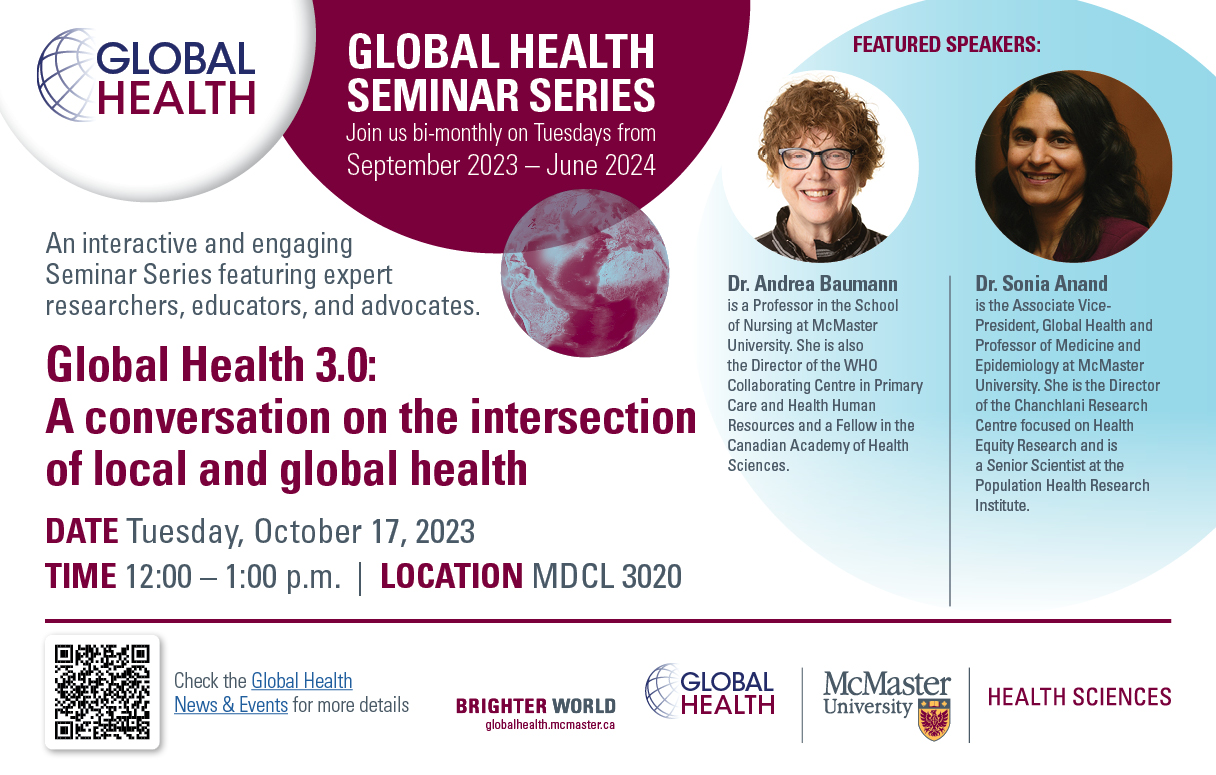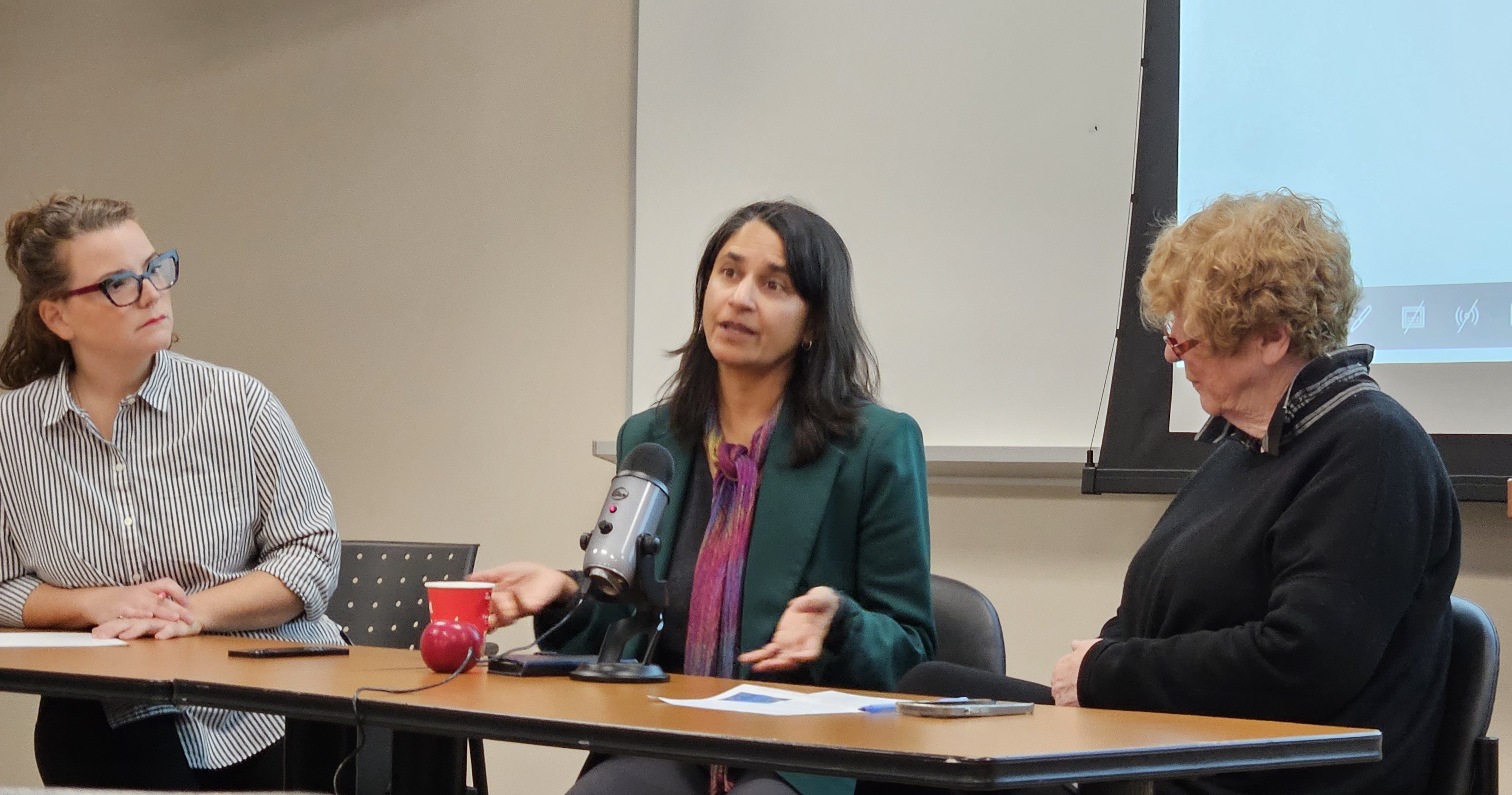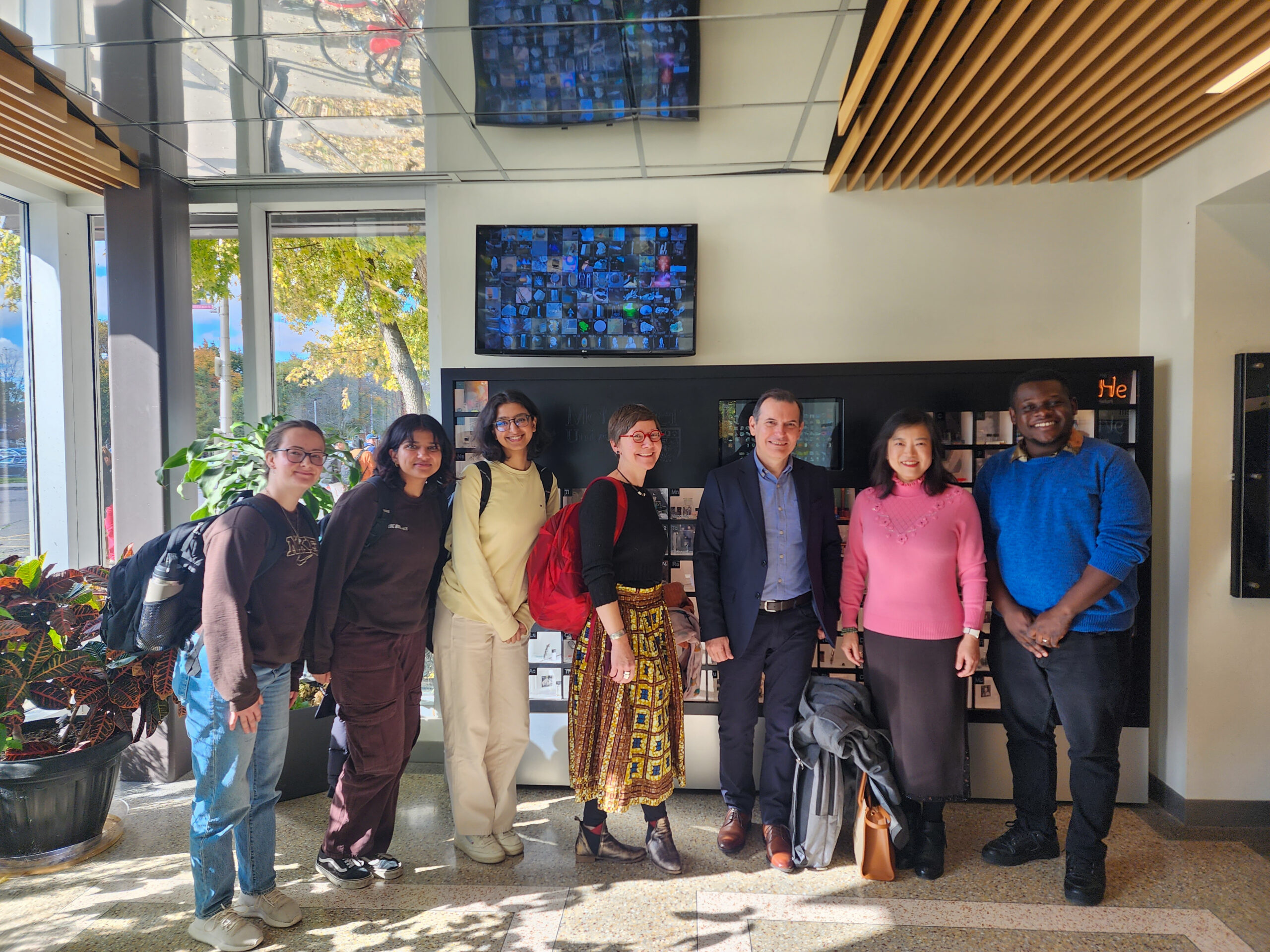Humility, humanity and health equity: Inclusive solutions to complex local and global health challenges

Reminding us to, “never doubt that a small group of people can achieve change”, Deborah DiLiberto, Assistant Professor of Global Health at McMaster University, introduced the Global Health Seminar which explored the intersection between local and global health.
The seminar was a conversation between Andrea Baumann, Professor at the School of Nursing and Director of the WHO Centre in Primary Care and Health Human Resources, and Sonia Anand, Professor of Medicine and Associate Vice-President of Global Health at McMaster University. The impactful discussion touched on topics including the increasingly blurred lines between local and global health, diverse perspectives into global health, and how global health students can stimulate change in their local communities.
The discussion centered on connecting local perspectives to global ones to support ways of knowing outside dominating paradigms. For instance, Anand discussed Indigenous ways of knowing, explaining that many Indigenous works have not been fully translated. This insight helped to demonstrate how valuable perspectives continue to be overlooked within global health, as well as the problematic dominance of the English language within research and academia.
 Discussing the importance of humility in global health, Anand offered an example from her own experience conducting research in India. Contrary to existing assumptions, she discovered that wait times for heart-attack treatments were shorter in Indian hospitals in comparison to Canada. This highlights that North American institutions don’t always have all the answers and that there are many opportunities to learn from our international partners. For example, Canadians can also learn from other countries regarding their treatment of Indigenous communities. Hence, practicing humility and establishing a multi-directional flow of information must become fundamental pillars within the field of global health.
Discussing the importance of humility in global health, Anand offered an example from her own experience conducting research in India. Contrary to existing assumptions, she discovered that wait times for heart-attack treatments were shorter in Indian hospitals in comparison to Canada. This highlights that North American institutions don’t always have all the answers and that there are many opportunities to learn from our international partners. For example, Canadians can also learn from other countries regarding their treatment of Indigenous communities. Hence, practicing humility and establishing a multi-directional flow of information must become fundamental pillars within the field of global health.
These ideas on diverse ways of knowing led to a discussion about the need to dispel intellectual and physical boundaries within global health. Baumann explained that dispelling physical boundaries means working to create change locally and understanding that global health does not necessarily need to be performed in other countries. A question that many global health students may ask is: “How can I make a difference on a local level with a global health degree?” As Anand and Baumann pointed out, the principles of solving health problems can be applied everywhere, and as global health students and graduates, we are uniquely positioned to influence change in our local communities.
The discussion made it clear that by bridging global and local considerations, we can begin to understand and address the issues in our own communities. “As a global health graduate student, you have powerful tools of knowledge to help others,” remarked Baumann in response to a question about how we can adopt a mindset to tackle global health issues. Furthermore, by keeping in mind Anand’s focus on the 3 Hs, Humility, Humanity, and Health Equity, we can develop inclusive solutions to complex global health challenges.
Overall, Anand and Baumann presented a dynamic and multifaceted view of the future of global health by exploring how local perspectives are inextricably linked to global ones. Whether addressing issues on a global or local level, global health students are equipped with the knowledge and tools necessary to catalyze meaningful change. As Baumann said, “global health students should immerse themselves in health issues by reading about them, questioning them and being an influence for change in their local communities.”
Please join us for our upcoming Global Health Seminar Series featuring Dr. Esther Chin. See link for more details!
Global Health News, Student Blog
Related News
News Listing

November 12, 2024

Health and Humanitarian Implications of War, Crises, and Conflict
Global Health News
November 11, 2024

November 5, 2024
